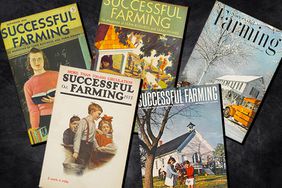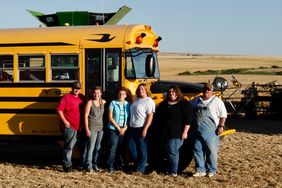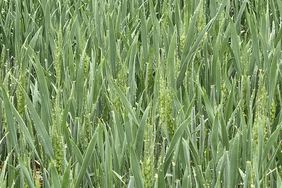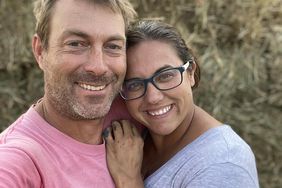:max_bytes(150000):strip_icc()/download-d80d5a50ea30477aa2e376d8934ce174.jpg)
In a world where women too often believe they aren't qualified to take on a job that is challenging or at a higher level, Catherine Feuillet's passion for pushing new frontiers, challenging herself, and building something that could benefit others has always propelled her forward.
The geneticist and molecular biologist shares how she has applied those principles throughout her career as a scientist.
SF: What led you to a career in science?
CF: Understanding the complexity of how biological organisms work and evolve has always fascinated me. Until my undergraduate studies, I had not yet discovered my passion for plant research and agriculture. Working on a research project with eucalyptus trees that improved a problem impacting our lives made me realize what I wanted to do.
Research also has a lot in common with what I love about sports. You work hard with a group to address challenges and continuously improve. There is competition, and you fail or win together. This culminated when I began working on wheat, which was and still is the perfect combination of intellectual challenges and purpose-driven research, because we were creating a crop that feeds 30% of the people globally.
SF: What has been the most interesting project in your career thus far?
CF: Fourteen years ago, no one thought we would succeed in sequencing the wheat genome. Five of us believed this was what needed to be done no matter how hard or how long it took. We went through some rocky times. We had doubts on whether we would have enough resources, and we were constantly seeking financial support. We experienced some very frustrating and disappointing betrayals. In the end, hundreds of scientists from all over the world worked together to deliver one of the best crop sequences produced and were rewarded by seeing it accelerate wheat improvement.
It was a unique human and intellectual adventure with a wonderful purpose and an outstanding group of people. It was never about ticking boxes, trying to publish in a high-impact journal, and then moving on to something else to promote our careers. It was about accomplishing what needed to be done despite the difficulties.
I feel the same way about my new role at Inari (inari.com). There is nothing easy in what we are trying to accomplish. Yet, we need to bring plant breeding to a new age and solve a very complex problem: rapidly creating hundreds of new varieties that will perform optimally in their local environment while requiring minimal natural resources.
SF: Why should consumers care about the work you're doing? Why should farmers care?
CF: We are trying to bring diversity and fresh air to a consolidated industry that has not seen a lot of new players for decades. We are also trying to solve problems consumers should care about as citizens of a global world and as members of communities and families who want to raise their children in an environment that should not be polluted and devastated by a rapidly changing climate. There is a way to provide people with enough healthy food without impacting our environment and depleting our resources.
Science and technology have a role to play in addressing that, and new business models must emerge. People who have the same purpose also need to work together beyond their own ideologies.
This can only happen if people recognize how essential agriculture is for their own lives and that they have a role to play in supporting a vision where we should not have to choose between maintaining biodiversity or preserving our planet and enabling people to feed themselves across the globe.
Farmers already care, because we are providing them with choices. New varieties help them produce food for their fellow citizens while preserving their land and natural resources.
SF: What advice would you give to a young woman interested in entering a STEM-related field?
CF: Go for it! This is the best job in the world. Not everyone has the chance to combine work and purpose. Working in a STEM-related field gives you the unique opportunity to do so.
Bio:
Hometown:Orleans, France
Background:Feuillet is a geneticist and molecular biologist known for sequencing chromosome 3B on the wheat genome.
Education:Feuillet has been working on plant genetics since 1994, when she completed her postdoctoral studies at the Swiss Federal Institute for Agroecology.









